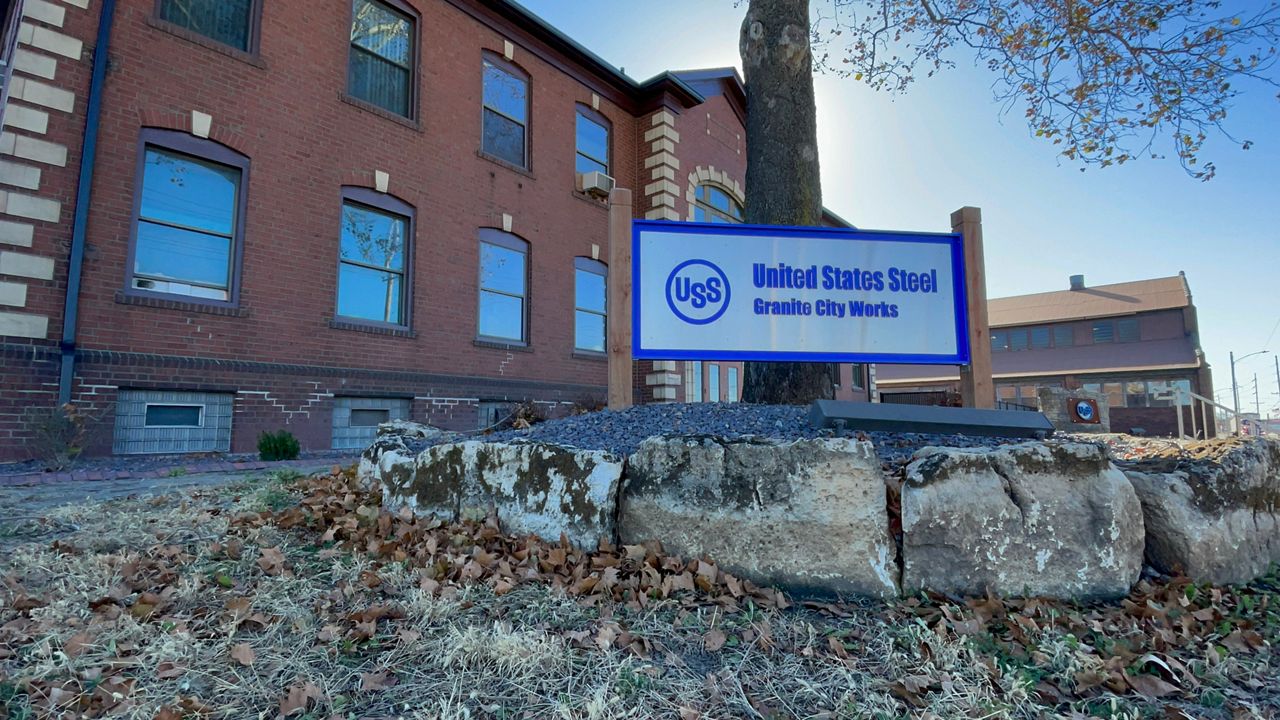GRANITE CITY, Ill.—Ten months after Nippon Steel announced plans to buy U.S. Steel in a $14.9 billion dollar deal, steelworkers and elected officials say they’ve heard little to nothing about what the agreement would mean for U.S. Steel’s operations in Granite City.
When the deal was unveiled last December to make U.S. Steel a subsidiary of the Japanese firm, Nippon said it would honor all collective bargaining agreements and was committed to maintaining a relationship with workers.
In Granite City, a total of 1,000 employees have been on a form of temporary layoff because U.S. Steel idled a blast furnace in 2019 and then idled the other last October. Union leaders say some of those employees have resigned and moved on, while 700-750 union steelworkers remain on the job, processing steel slabs brought in from other facilities.
The agreement has been approved by international regulators but faces opposition from President Joe Biden and the presidential campaigns of both Vice President Kamala Harris and former president Donald Trump.
Last month, Nippon said it would increase its financial commitment to investing in U.S. Steel’s facilities in the company’s home state of Pennsylvania, with at least $1 billion in upgrades to facilities in a political battleground state.
In winning a case brought to arbitration by union steelworkers, Nippon also said it would not conduct layoffs or plant closings during the term of the basic labor agreement and would protect U.S. Steel’s best interests in trade matters.
When asked about plans for Granite City, a U.S. Steel spokesperson told Spectrum News on Friday that the company is “committed to the transaction with Nippon Steel, which is the best future for our employees, customers, communities and the American Steel industry, adding that the transaction will “strengthen the American steel industry, American jobs, and American supply chains, and enhance the U.S. steel industry's competitiveness and resilience against China.”
“If that’s the case, what are there plans for Granite City and the unique type of steel manufacturing that we do that no other place in this country does,” Rep. Nikki Budzinski, D-Ill. said at a news conference outside the local Steelworkers union hall in Granite City, which is part of her congressional district.
“In the absence of those details, that’s just a lot of corporate-speak,” she said.
The agreement is now being evaluated by the Committee on Foreign Investment in the United States, a federal government panel that evaluates whether there is a national security risk and then makes a recommendation to the White House. A decision is not expected until after the Nov. 5 election.



